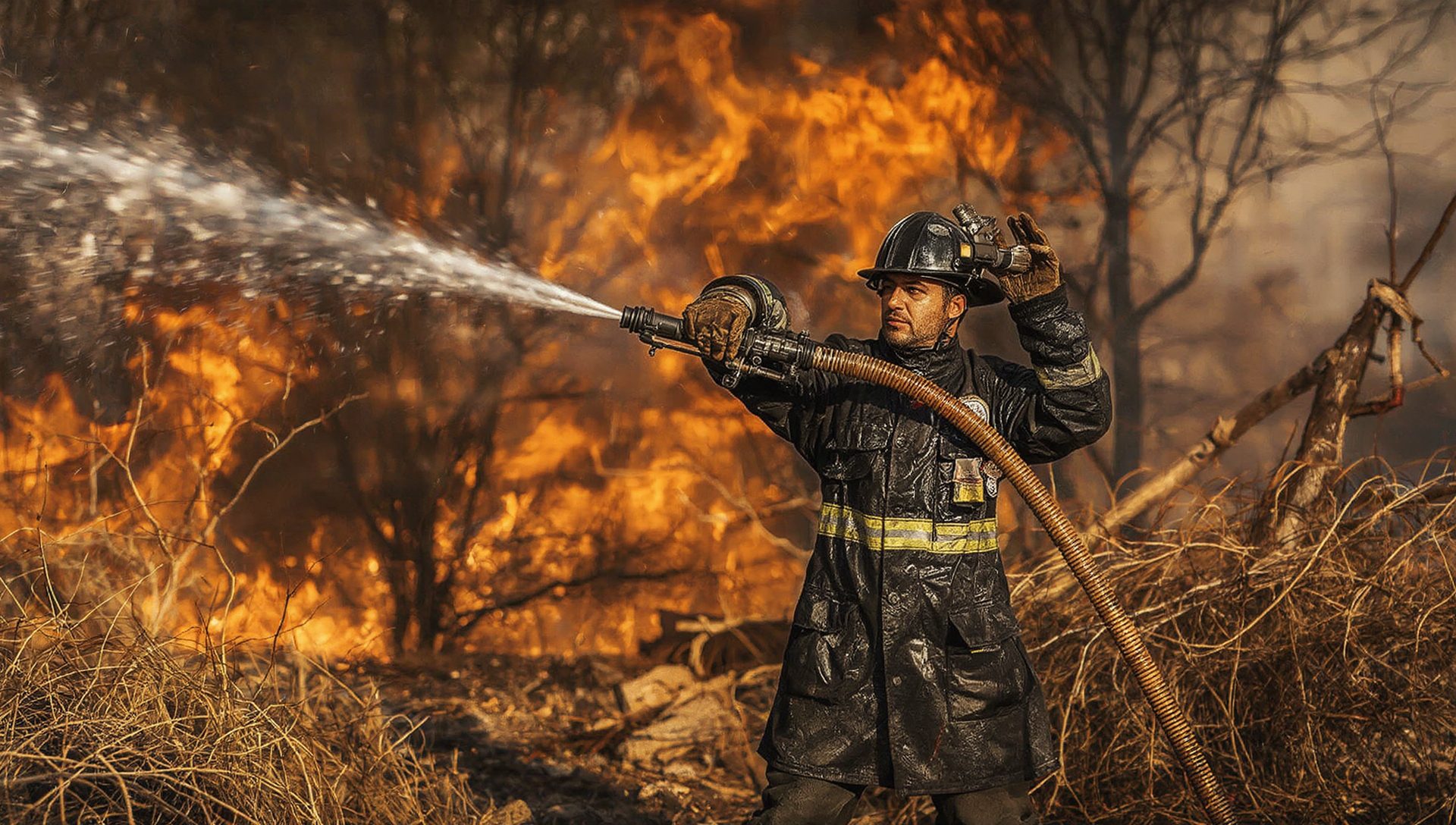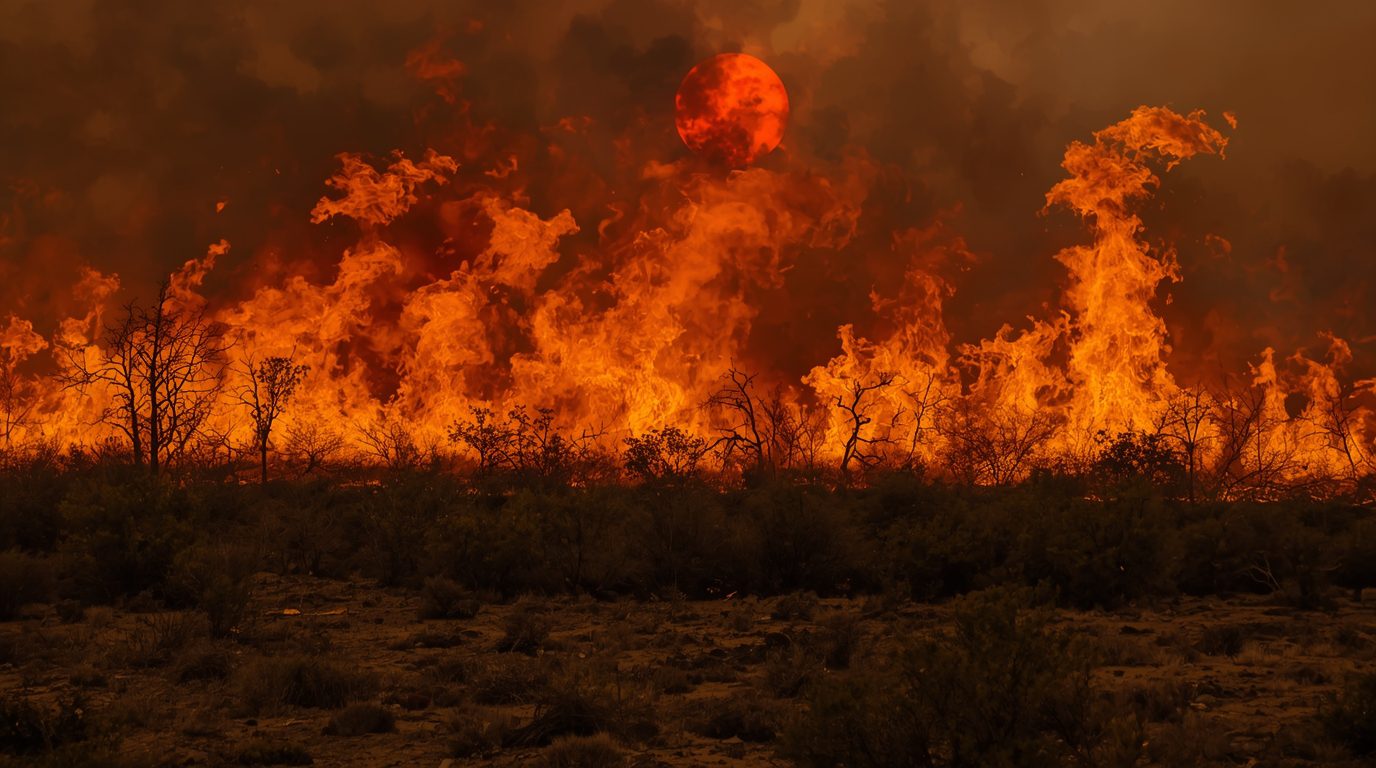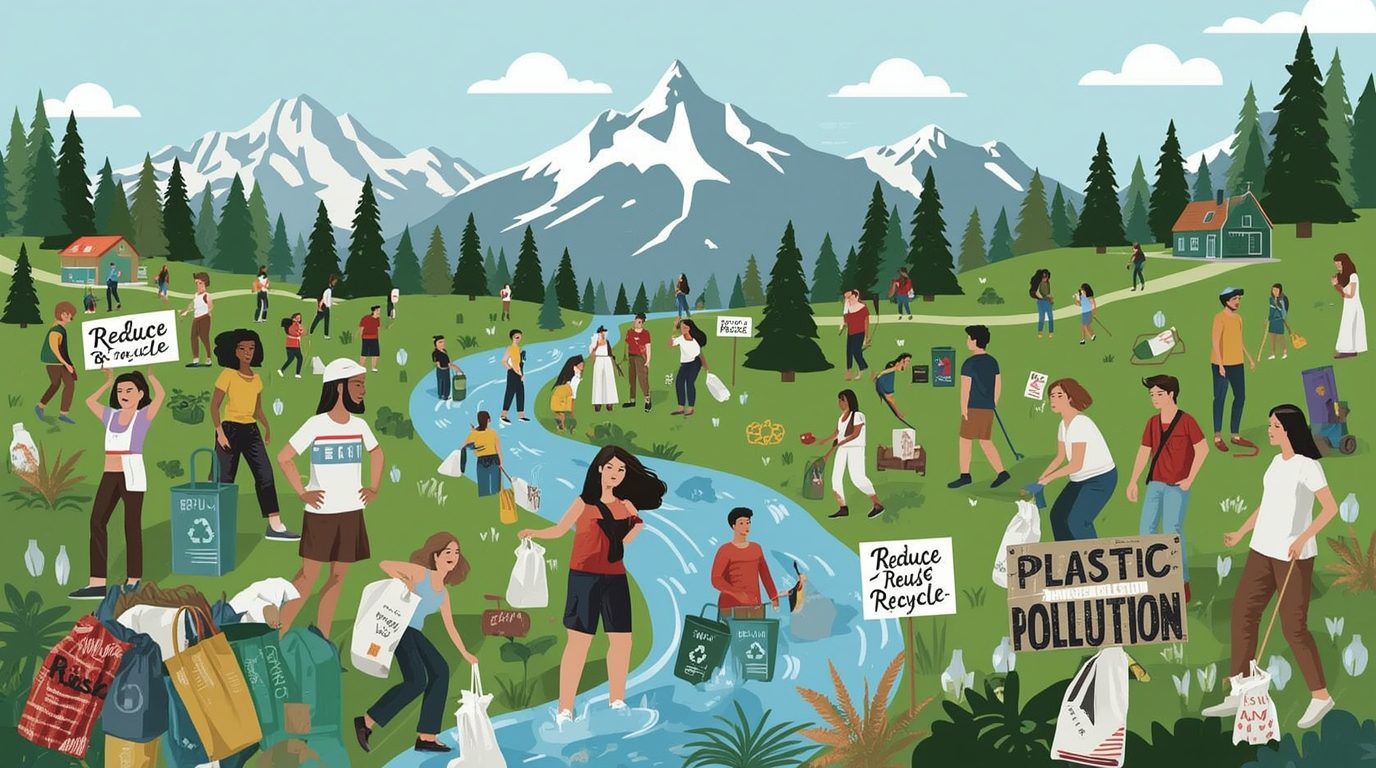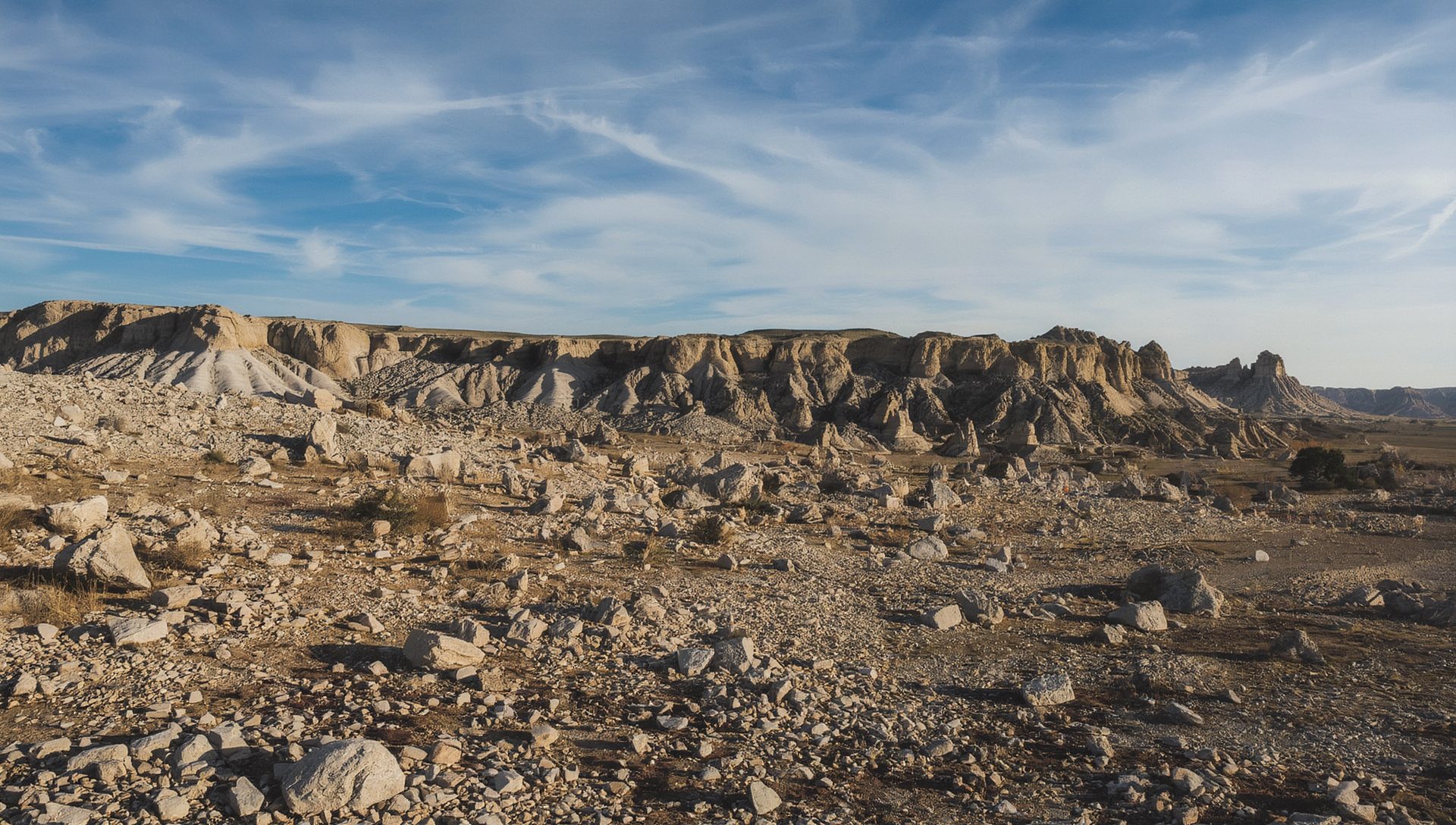Southern France Faces Historic Heatwave and Wildfires Threatening Lives and Livelihoods
Occitanie, France – Southern France is in the grip of a historic heatwave, with soaring temperatures fueling one of the largest wildfires in recent memory. In the Aude department, flames have consumed roughly 16,000 hectares—an area 1.5 times the size of Paris—forcing hundreds of evacuations and claiming at least one life. Authorities warn the fire is far from contained, while climate experts say it reflects a growing European wildfire crisis linked to climate change.
Fighting the Flames
The scale of the wildfire has prompted an unprecedented mobilization of resources. Around 1,300 firefighters are battling the blaze with the support of helicopters and water-dropping aircraft. Fire Chief Christophe Magny described it as “an ongoing battle,” cautioning that dry winds, low humidity, and extreme heat could easily reignite flames.
Aude’s prefect, Christian Pouget, urged residents to remain vigilant and obey evacuation orders. Emergency shelters provide temporary housing, food, and medical care, while road closures keep civilians away from danger zones.
Human Toll and Community Impact
One person has died, and several others have been injured by burns or smoke inhalation. Many families have lost homes, while centuries-old family farms, vineyards, olive groves, and pastures have been damaged.
Marie-Claire Dupont, a local resident forced to evacuate, recalled, “We watched the flames approach our village. There was no time to save much. Everything we worked for this year—our olive trees, our vineyard—may be gone.”
Smoke from the fire is also affecting air quality, particularly for children and the elderly. Hospitals report increased respiratory problems, and medical teams are distributing masks and monitoring vulnerable populations.
Environmental and Agricultural Losses
The wildfire is devastating local ecosystems and agricultural lands. Southern France’s forests, scrublands, vineyards, and olive groves are central to both the region’s economy and cultural heritage. Preliminary estimates suggest tens of thousands of hectares of crops have been damaged, potentially affecting both domestic supply and exports. Experts warn recovery may take years, requiring soil restoration, replanting, and financial support for affected farmers.
Part of a Broader European Heat Crisis
Southern France is not alone. Across Europe, extreme heatwaves and wildfires are becoming more frequent. Italy has seen fires near Mount Vesuvius, while Greece battles wildfires southeast of Athens. Scientists attribute these patterns to rising temperatures, prolonged droughts, and shifting precipitation, all amplified by climate change.
Professor Isabelle Martin, a climate researcher at the University of Montpellier, explained: “Vegetation is drying out faster due to prolonged heatwaves. Combine that with strong summer winds, and you have a perfect storm for wildfires. Without long-term forest management and climate adaptation, these events will only worsen.”
Government Action and Preventive Measures
French authorities are implementing multiple measures:
- Clearing brush and dead vegetation to reduce fire fuel.
- Deploying additional firefighting aircraft to support ground teams.
- Coordinating evacuations and public safety campaigns.
- Restricting access to high-risk areas and setting up temporary shelters.
Captain Magny warned, “The fire is sleeping, not dead. Under these weather conditions, we can’t let our guard down, even for a second.”
Economic and Social Consequences
The wildfire threatens livelihoods, tourism, and infrastructure. Vineyards and olive groves are central to local economies, while evacuation orders and damaged infrastructure have disrupted summer tourism. Economists estimate cumulative losses from property, agriculture, and tourism could run into hundreds of millions of euros if fires continue unchecked.
Health Risks
Wildfire smoke carries toxins that exacerbate respiratory issues, especially for children, the elderly, and those with pre-existing conditions. Residents are advised to stay indoors, wear masks, and monitor vulnerable family members. Public health campaigns emphasize hydration and caution amid the ongoing heatwave.
Personal Stories and Community Resilience
Amid the devastation, local communities have rallied to help one another. Families have worked to save livestock, protect crops, and assist neighbors. Farmer Jean-Luc Moreau shared, “We have lived here for generations, tending our vineyards and olive groves. Seeing it all burn in hours is devastating. Yet the community’s support gives us hope that we can rebuild.”
Lessons and the Path Forward
Experts emphasize the need for:
- Regular forest management and controlled burns.
- Firebreaks and better access roads for emergency response.
- Early-warning systems and community preparedness drills.
- Climate action to reduce greenhouse gas emissions and mitigate extreme heat events.
Conclusion
Southern France’s wildfires are a stark reminder of climate change’s immediate and long-term impacts on human life, ecosystems, and economies. With extreme heat, parched landscapes, and strong winds, the Aude fire illustrates how natural forces and environmental degradation combine to create unprecedented disasters.
Captain Magny summed it up: “We are fighting with everything we have, but nature’s power is formidable. Every resident, every local authority, every firefighter must remain alert. This is not just a fire; it is a test of our resilience and preparedness.” Learn more at The Climate Post.




